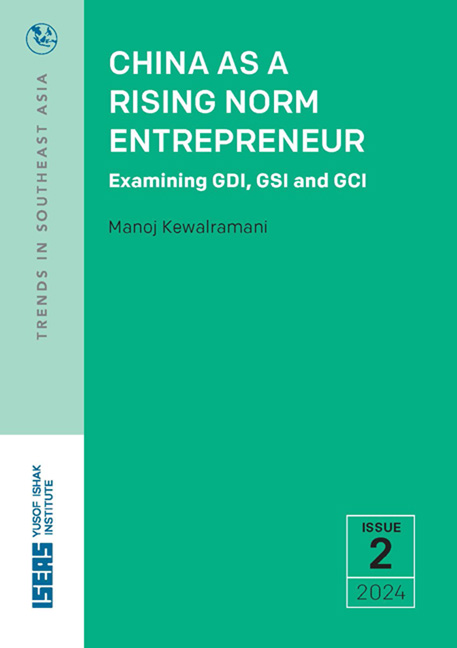China as a Rising Norm Entrepreneur: Examining GDI, GSI and GCI
Published online by Cambridge University Press: 16 April 2024
Summary
INTRODUCTION
Addressing a gathering at the Moscow State Institute of International Relations in March 2013, Chinese President Xi Jinping talked about the concept of mankind being a community of shared future or with a common destiny. This was Xi's first major foreign policy speech, during his first foreign visit, after taking over as president. Analytical and media discourse at the time paid little attention to this concept. Instead, much of the discussion was focused on what appeared to be the articulation of shared grievances and a convergence of objectives between China and Russia. From a policy perspective, the idea of people being a community of common destiny or shared future was rather vague. Moreover, it did not seem novel. In fact, in Chinese discourse, this concept can be traced back to the pre-Xi era.
As far back as 2007, there were references to people in the Mainland and Taiwan forming a community of common destiny. The phrase was also used by Xi's predecessor, Hu Jintao, in his report to the 18th Party Congress in November 2012. In Hu's articulation, the concept of mankind as a community of common destiny largely seemed to refer to the interconnected nature of the world. This implied that it was in China's interests to engage in mutually beneficial cooperation with other countries. At the same time, it encapsulated ideas of the need to pursue the construction of a global order featuring common security and common development.
However, in the decade that followed Xi's ascension to power, Chinese foreign policy gradually but decisively shifted away from the era of keeping a low profile towards more purposeful and proactive efforts to shape a favourable external environment. This was reflected in the description of Chinese foreign policy under Xi as exploring a new pathway of major-country diplomacy with Chinese characteristics. In this context, the concept of mankind being a community of shared future began to acquire greater salience. It implied the desire to construct “a new concept of morality and interests” in international affairs, with the focus primarily being on China's neighbouring countries and the developing world. Chinese scholars argued that the concept embodied China's responsibility and efforts to reform global governance.
- Type
- Chapter
- Information
- China as a Rising Norm EntrepreneurExamining GDI, GSI and GCI, pp. 1 - 38Publisher: ISEAS–Yusof Ishak InstitutePrint publication year: 2024

